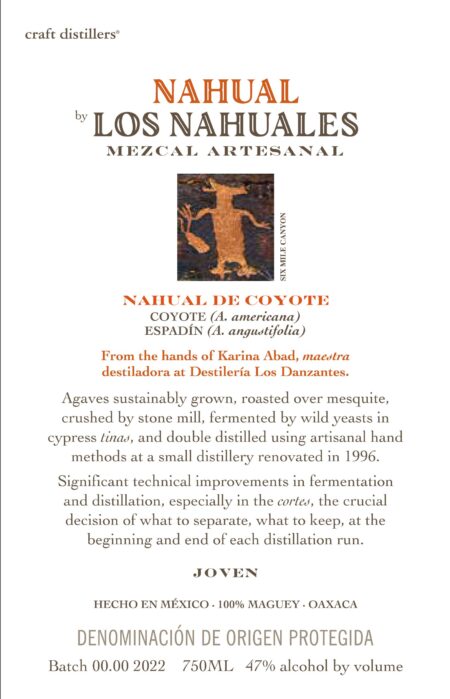
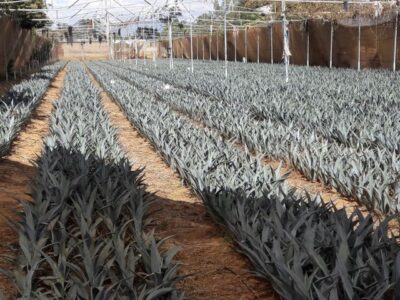
![]()
In 2014, in collaboration with the Centro de Investigación Científica de Yucatán and the Universidad de Chapingo, Los Danzantes started a research project to identify agaves for mezcal production that had reproduction issues and/or were threatened by over-exploitation
they experimented with 20 species, working with tissue culturing
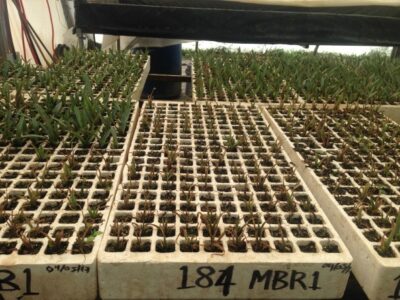
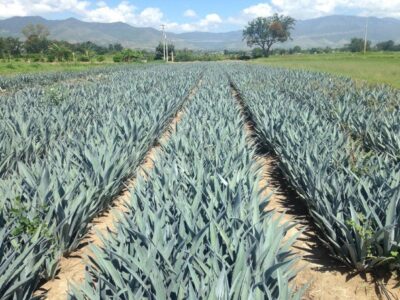
By 2017, Los Danzantes had 600,000 agaves in the ground, comprising 12 varieties, many of them originally collected in the wild, and laid plans to plant a million more. Species included arroqueño, barril, coyote, lumbre, Mexicano, and sierra negra). At the end of 2022. there were 940,000 agaves under cultivation, and mezcals from cultivated coyote were in bottle.
Seedlings in the greenhouse
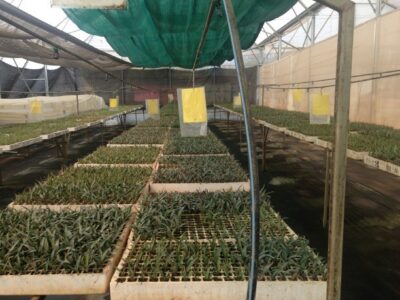
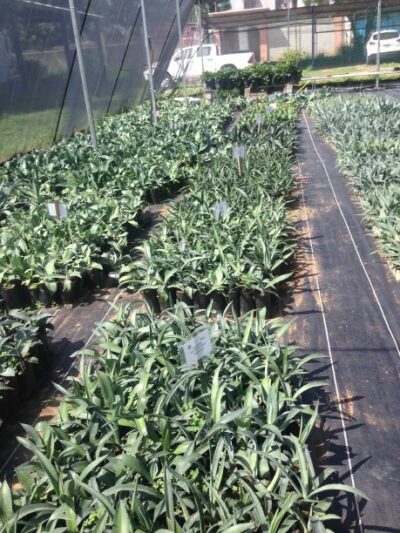
Different agave species
transplanted outdoors
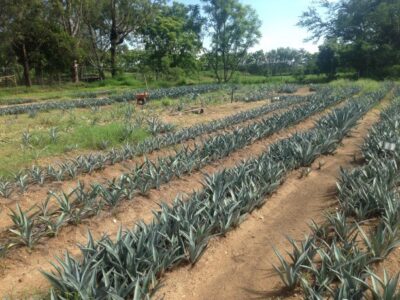
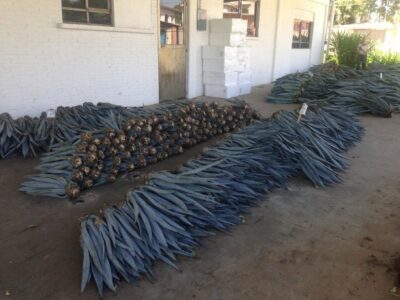
ready to move to a field
replanting in a field
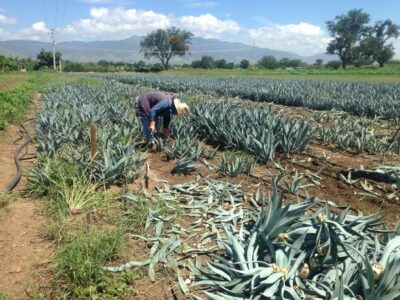
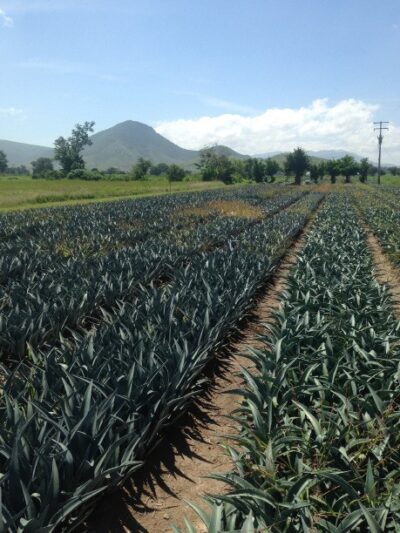
After a while, they will be moved to other fields where they can be spaced apart to grow to maturity.
And turned into this.
Responsible alchemy
